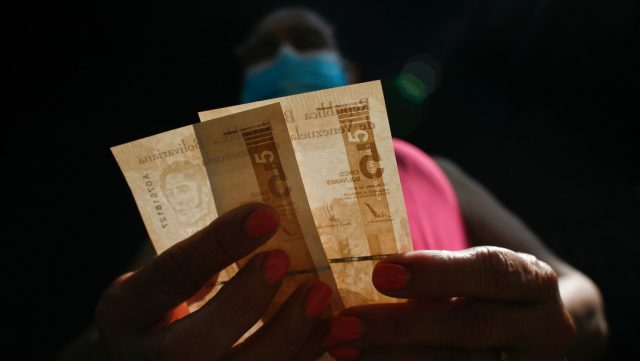The Swiss investment bank Credit Suisse has surprised everyone by estimating Venezuela ‘s economic growth for 2022 at around 20 points.
“We revised our real GDP growth forecast for 2022 to 20%, from a previous projection of 4.5% (…) If accurate, this would end up being among the highest figures in the world this year”, says the report , accessed by Bloomberg.
Since 2021, several institutions, such as ECLAC, have been projecting sustained growth in the country that during the current year could reach three points. Others, such as the International Monetary Fund (IMF), considered that Venezuela would not have any economic growth or in any case a very weak one, explains the sociologist Ociel Alí López in an article for RT.
Since last year there have been different opinions about whether growth would continue to be moderate or if it would become advanced, but they always considered it comparable to the rest of the countries in the region, unlike previous years marked by a pronounced decrease.
For this reason, the fact that Credit Suisse published such high estimates last week may lead one to think that the financial entity is expecting some extraordinary event that will allow the projections to be triggered in that direction. At least, it sounds reasonable that the Swiss bank has information that allows them to draw this trend.
It must be remembered that Switzerland has been the country that legally represents US interests in Venezuela since the definitive break in relations. And now, the rapprochement of the White House with Caracas, in March, brings to light scenarios that seemed impossible months ago.
Why so much optimism for Venezuela
The Swiss bank is supported by two arguments to make its proposal: the first has to do with the increase in oil production. If in 2021 this was about 550,000 barrels of oil per day, they consider that an increase of 100 or 150,000 barrels – although President Nicolás Maduro has promised to bring production to 2 million barrels per day – can produce this significant increase in growth.
The second has to do with the increase in tax revenue, which between January and March 2022 was more than doubled last year’s collection.
Both arguments look solid. However, it is strange that these data, publicly known for several months, have not been assumed by the rest of the agencies that estimate much lower growth or even stagnation.
Is it that the bank expects something extraordinary to happen or does its «good vibes» have more to do with trying to inflate optimism about the country to favor certain financial interests? What does Credit Suisse know that we still don’t know, apart from a slight increase in oil production and improved tax revenues?
What is known in Switzerland
The information sources in Switzerland on the subject of Venezuela are not ignorant at all. The Swiss government plays a leading role for Washington’s interests in the Caribbean country.
Already in April 2019, in the midst of the aggressive advance of the US government and once the US ambassador in Caracas had been ‘withdrawn’, Switzerland signed an agreement with Washington to represent its interests in Venezuela.
In October 2020, Switzerland appointed an ambassador to Venezuela and thereby formally recognized the Maduro government.
In fact, during the visit to Caracas made last month by Juan González, White House representative for the US’s affairs, with his entourage, they were accommodated during their stay at the Swiss embassy, which served as a meeting center with the opposition.
The forecasts of the financial entity could be related to the information that emerged as a result of that visit (which meant Washington’s de facto recognition of the Maduro government), as well as its subsequent effects related to the efforts of the oil company Chevron to increase its activity in the country, reduced to a minimum in recent years due to the sanctions from the US Department of the Treasury.
The option of underestimating the information handled by the bank, on Washington’s official policy, for such a high projection, cannot be neglected, especially when the taboo of Western public opinion is so reactive on the subject that it does not allow the sincerity of US operators.
What does 20% growth mean for Venezuela?
To recreate this figure, it should be remembered that for the World Bank the economic outlook places world growth at 4.1%. This means that if the projections of the Swiss bank (and those of the World Bank) are correct, the growth of the Venezuelan economy would be five times the world growth.
Basically, this data, although it ends up being uncertain, definitively precipitates the end of the narrative of the humanitarian crisis used as a justification for a probable military intervention.
This projection also places the country, in the near future, as a privileged and important place for geopolitics and energy trade.
Venezuela has the largest proven oil reserves in the world and it also has an installed capacity that can allow it to exponentially increase its production.
The projective data on Venezuela encourages the bondholders of the Venezuelan oil company (PDVSA). The sanctions pushed the State-owned company into default and a change in policy could revive interest in this debt.
For now, for the estimates to be fulfilled, all that remains is to wait for a more aggressive turn from the US Administration, since, if the current situation continues, characterized by sanctions, an economic rebound could be expected, but never of the magnitudes proposed by the financial entity.



